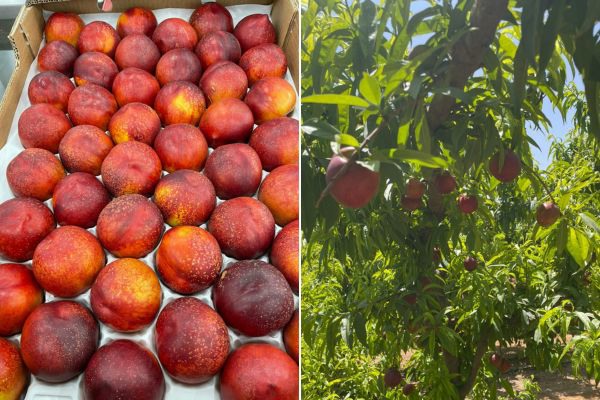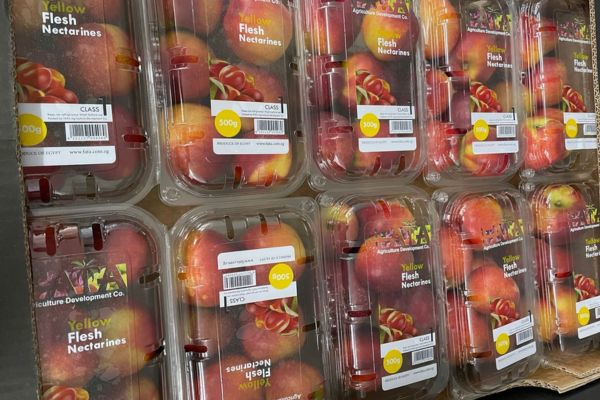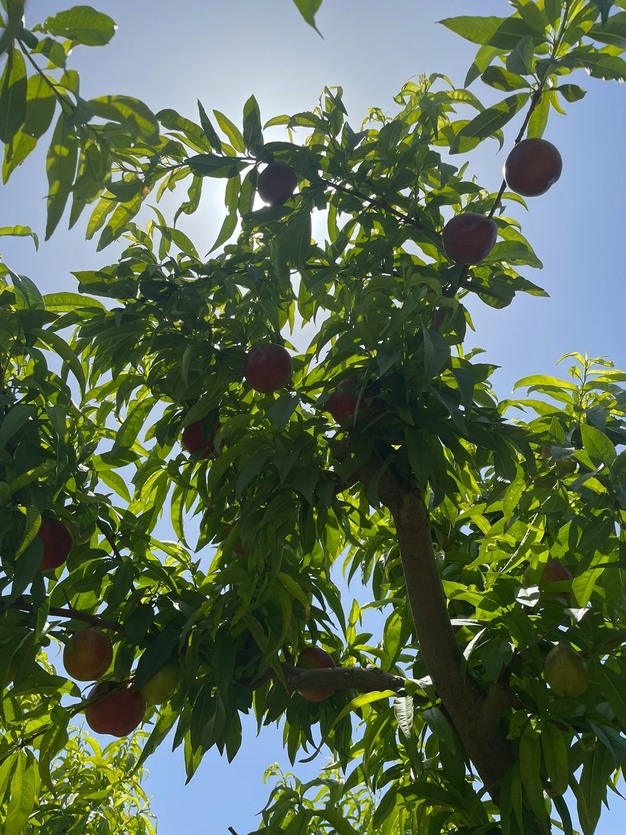The stonefruit campaign is starting in Egypt with lower volumes than last year, due to unstable weather conditions, and smaller sizes in the first harvests. Karim Fayed, operations manager of the Egyptian producer Fayed Agricultural Development Company (FATA), gives us an overview of the beginning of the season.

According to Fayed, "The volume of this season is lower than last season, and we are seeing smaller fruits, due to the weather conditions in Egypt being very inconsistent and temperatures hotter than last year. Physiologically, to get the best fruit quality and size, you need moderate and constant weather to avoid disturbing the plant. However, when there is high heat, as is the case in Egypt this year, the fruit is smaller and earlier."
To further complicate growers' operations, heavy rains came just at harvest time, Fayed adds, "We've had 3 days of heavy rains so far this month but they've been spread out and separated by very hot temperatures. The weather situation remains unpredictable for now but the most recent forecast indicates that the rainy season is over. We are now waiting to see how the situation will develop. As long as no hail knocks down the fruit, rains shouldn't have any effect other than delaying the harvest date by a few days."

The grower says he is in a comfortable position, however, with smaller sizes offset by better quality: "We are seeing a better percentage of export quality than last year due to significant improvements on an agronomic and operational level, which reflected on flavor and eating quality. Therefore, despite the loss of volumes produced, of about 10-15%, we have recorded an increase in exportable volumes of 30% compared to last season."
The Egyptian season begins as Spain is expected to enter the market early - which is a concern for Egyptian producers - and South Africa is not a big risk to Egyptian production, according to Fayed.
"The main competition we face in our markets is Spain, as our main customer base is in the UK. As soon as Spain starts to enter the market, British buyers will turn to them as their prices are much more competitive than ours. This can have very negative consequences for us as Spain has had a hot stonefruit season and will enter the market while we are still in our peak period, eventually forcing us to redirect our marketing strategy to other markets or lower our prices significantly. On the other hand, we do not need to wait for the end of the South African season because our quality is better. We have varieties that are easy to market thanks to their taste, which will allow us to hold a better position in the market."
 As for demand, Fayed says, "Demand from the UK is down 25% this year compared to last year due to the earlier arrival on the market of Spanish produce. We are also seeing a drop in demand from the end consumer due to the rainy days and Easter vacations. Due to this situation, we're targeting to do more business with Far East markets as well as to maintain some volume to the UK to meet customer demand.
As for demand, Fayed says, "Demand from the UK is down 25% this year compared to last year due to the earlier arrival on the market of Spanish produce. We are also seeing a drop in demand from the end consumer due to the rainy days and Easter vacations. Due to this situation, we're targeting to do more business with Far East markets as well as to maintain some volume to the UK to meet customer demand.
In this commercial context, the solution for Egyptian stone fruit producers is to extend the season with early production, according to Fayed. "We currently have in commercial volume for this year SunWright for yellow-fleshed nectarines and Flavana from PSB for white-fleshed nectarines, while for peaches we have Florida Prince. We also planted Sunworld varieties to expand our variety and product portfolio and help extend our season. We continue to strive for good quality fruit at an early stage, which allows us to easily penetrate the market."
The way to early production is through varietal development, Fayed adds. "We will most likely replace the Sunworld and Buffat varieties we currently have in our trial block, as they will be planted commercially, and we will look for new varieties to test in order to have an early production. In terms of acreage, we are increasing our areas by 60 acres this year and another 20 acres next year. These crops will be harvested in 2025-26."
For more information:
Karim Fayed
Fayed Agricultural Development Company (FATA)
Tel: +201001499959
Email: [email protected]
www.fata.com.eg
